The content of the article
- 1 How to understand that a child has acetonuria
- 2 Physiological causes of increased levels of acetone in the body
- 3 Pathological causes of increased levels of acetone in the body
- 4 What to do if the level of acetone in the urine of the child is increased
- 5 Video: where does acetone come from in the child's body
Normally, the urine of a healthy person contains a small amount of acetone. If this amount significantly exceeds the permissible limits, we can talk about acetonuria. This is a condition that occurs against the background of various metabolic changes in the body. Proteins and fats that enter the body are oxidized and synthesize glucose. If oxidation does not occur properly, ketone bodies appear in the blood, a variety of which is acetone. Most often, acetone in the urine is observed in children, since their metabolism is imperfect and various malfunctions can occur in metabolic processes. Today we’ll talk about why acetone appears in the urine of a child, how to suspect a high level of acetone, and how to deal with such a pathology.
How to understand that a child has acetonuria
Identify a high level of acetone in the urine is possible only by analysis. But what causes many mothers to pass urine to the laboratory on time or to do the analysis on their own? What symptoms may indicate an increased level of acetone in the urine? As a rule, acetone rises due to dehydration, which most often occurs due to food poisoning, anemia, diabetes mellitus, etc.
- Acetone rises with repeated vomiting and nausea. Often the child is sick so much that any eaten piece and even a sip of water leads to another attack of vomiting.
- The child’s appetite is lost, he doesn’t want to try even his favorite treats.
- If the increase in acetone is associated with poisoning, the child may have a stomachache, he feels cramping.
- Dehydration and high levels of acetone can often be caused by multiple diarrhea.
- The child has intoxication - he experiences weakness and apathy.
- The skin becomes dry, palms and elbows on the back can begin to peel off.
- Ask your child to show you the language. If you find a whitish coating on the surface of the mucosa, most likely, the acetone in the body is elevated.
- Dehydration is often accompanied by high body temperature, which is also a symptom of acetonuria.
- Another sign is a small daily urine output. Children older than a year should feel the urge to urinate at least once every 3-4 hours, babies up to a year should write more often.
- In severe cases, when the number of ketone bodies in the body exceeds the permissible limits, the child may have a characteristic smell of acetone from the mouth, from urine and vomit.
- A high level of acetone affects the functioning of the nervous system, the child becomes lethargic or, conversely, agitated, loses balance, his consciousness gets confused.
- One of the worst symptoms of high levels of acetone in the urine is the child’s severe drowsiness, which results in a coma.
An increase in the level of acetone in the urine may be primary - as a rule, in children with neuro-arthritic diathesis - this disease disrupts the metabolism, namely, the exchange of uric acid. Secondary acetonuria occurs against the background of other diseases - infections, diabetes, etc. Let's try to understand the physiological and pathological causes of an increase in the level of acetone in the urine.
Physiological causes of increased levels of acetone in the body
The pancreas of a child is formed up to 12 years. Therefore, any changes in the body, diet and the environment can lead to an increase in acetone.
- One of the main reasons is malnutrition that does not correspond to the children's body.Too fatty, smoked, spicy, salty foods, as well as a high content of chemical flavorings, stabilizers, dyes, can lead to an increase in the level of acetone in the body. Acetone can also increase due to prolonged fasting, strict diets, when the patient’s diet contains a lot of proteins and fats, but a minimal amount of carbohydrates.
- The high motor activity of the child can lead to acetonuria. In this case, you need to minimize the load and engage in quiet games and entertainment.
- Lack of sleep and fatigue, systemic, which increases each time, can also cause high levels of acetone. Often this affects children who are recorded in many sections and circles.
- Strong emotional stress can also cause an increase in the level of acetone in the urine of the child. Fright, stress, loss of a loved one, and similar intense experiences can cause this condition.
- Severe dehydration and increased levels of acetone in the urine may be the result of prolonged exposure to the sun, in hot rooms, etc.
- Hypothermia can also cause an increase in the level of acetone in the urine, because the body begins to spend not only glucose, but also fat and protein reserves to obtain vital energy.
The physiological causes are fairly simple to understand and easy to overcome. But what if the elevated levels of acetonuria are caused by more serious problems?
Pathological causes of increased levels of acetone in the body
An increase in the level of acetone can be a secondary symptom against the background of other diseases and conditions of the patient.
- A high level of acetone in a baby’s urine is the first sign of diabetes. With this disease, glucose in the body is enough or even in excess, but only there is no insulin that allows it to be properly absorbed. A high level of acetone in the urine is observed with type 1 diabetes.
- Acetone can increase due to enzymatic deficiency, in which carbohydrates are poorly absorbed. This enzyme deficiency can be a congenital pathology or a consequence of simple food poisoning, as well as an infectious disease.
- The level of acetone in the body may increase against the background of the recovery period after surgical treatment.
- The high temperature occurring against the background of respiratory, infectious and other inflammatory processes can also cause an increase in acetone. In this case, the state of dehydration is achieved due to strong perspiration - this is how the body tries to normalize the temperature balance.
- Often, acetone in the urine rises against the background of cancer and severe traumatic brain injury.
If the elevated level of acetone persists in urine tests for a long time, and you cannot find an explanation for this, you need to see a doctor as soon as possible to refute or confirm the above conditions and diagnoses.
By the way, to determine the level of acetone in the body, it is not necessary to carry the urine of the child every time to the laboratory. The pharmacy has special tests for the amount of acetone in the urine. These are small strips saturated with special reagents that change color when they come in contact with acetone in a liquid. On the package there is a specially graded table that allows you to decrypt the result. As a rule, tests work in the color segment. The brighter the color obtained, the more acetone in the urine and the worse the condition of the child.
What to do if the level of acetone in the urine of the child is increased
You need to understand that an elevated level of acetone is an acetone crisis that you need to respond to instantly. The smaller the child, the more dangerous the situation. Dehydration in a baby can occur in just a few hours of vomiting and diarrhea.This is very dangerous and can be fatal. With symptoms of dehydration and an increase in the level of acetone in the urine, you need to act immediately.
- The child needs to be soldered. If acetone has increased due to starvation and overwork, you need to increase the level of glucose in the body as soon as possible. To do this, offer your child a warm sweet tea - with sugar or honey.
- If the baby is tormented by vomiting and diarrhea, it is very dangerous to stay at home, you must definitely go to the infectious diseases hospital to save the child from dehydration. Especially if the child is less than a year old. Before the doctors arrive, you need to give the baby to drink in small portions so as not to provoke another call for vomiting. Let's drink the child literally every 3-5 minutes in a sip. Doctors advise soldering a child during dehydration with a teaspoon.
- It is very effective to drink Regidron to restore the water-salt balance in the body. One sachet of the drug should be dissolved in a liter of water and give the child to drink in small sips. If Regidron was not at hand, the composition can be prepared independently by adding sugar, salt and baking soda to the water.
- To remove ketones from the body, you can drink any sorbents - Smectu, Enterosgel, Polysorb, Filtrum, Activated charcoal. This will help to quickly relieve symptoms of intoxication.
- In such conditions, it is very important to follow a diet so as not to create an additional burden on the body. If the child does not ask for food, do not force him; he does not need food at the moment. Most importantly, make sure that he drinks a lot. If the baby asks for food, you can give him some boiled rice, biscuit cookies, low-fat meat - rabbit or chicken, kefir, baked apple, etc. You need to feed the baby in small portions, but often, so as not to cause an attack of regular vomiting.
- In difficult cases, when the condition of the child is extremely serious, he is prescribed an intravenous infusion of glucose and vitamins.
- If the symptoms do not go away, you can do a cleansing enema. It will allow to remove intoxication and slightly reduce the temperature.
- It is very important to find out the cause of the acetone crisis in order to act wisely. For example, high levels of acetone in diabetes need to be treated with adequate insulin therapy. With infectious and viral diseases, in addition to the main treatment, you need to provide your baby with a plentiful drink. This is approximately 120 ml per kilogram of weight. If the child weighs 10 kg, he should drink at least 1.2 liters of fluid per day. The same goes for heat. A large amount of liquid enhances the effect of antipyretic drugs, without the liquid, the medicine will not be able to act, because the child needs to sweat with something.
The main prevention of high acetone in a child’s urine is a healthy and healthy lifestyle. Loads should be sufficient and moderate. Do not overload the child - after school, give him the opportunity to relax. Additional circles and sections should be dosed - no more than one lesson per day, there should be a break on the weekend. Children of primary school age should sleep 1-1.5 hours in the daytime. Before going to bed at night, you don’t need to watch TV or play computer games - the child’s nervous system should calm down.
Follow the rules of healthy eating. Children under 4-5 years old should not eat everything that adults eat, especially fatty dishes, salted crackers and chips, soda. In the hot season, limit the presence of children under the scorching sun, and if this is not possible, provide the child with a hat and plenty of fluids.
Water treatments are very effective. Record your child’s swimming, show him what a contrast shower is like, doused with cool water together in the warm season. This helps to improve metabolic processes in the body, in addition, it is a great way to harden.
It is very important to protect the baby from causes that can cause dehydration and increased levels of acetone in the urine.Be sure to do all vaccinations to avoid infectious diseases. Temper your child, give him vitamins so that he is less sick with respiratory viruses. Do not let your young daughters go on strict diets to lose weight. Teach the girl how to lose weight competently, following the principles of a healthy diet. Follow these simple rules to avoid diseases that can cause high levels of acetone in the body.
Video: where does acetone come from in the child's body

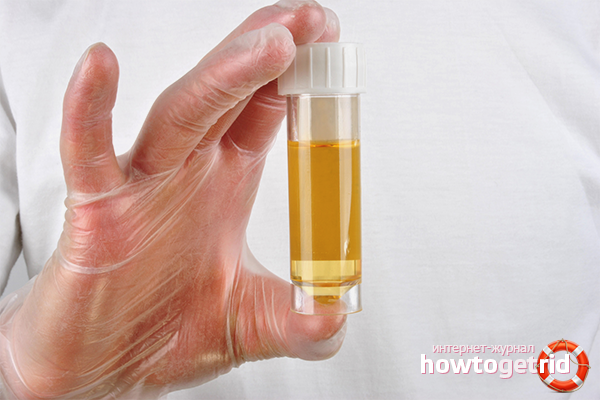
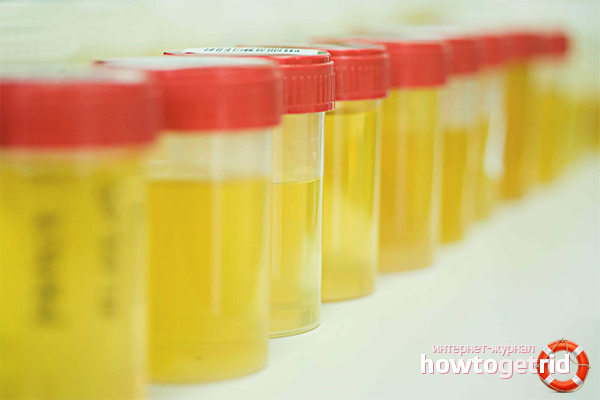
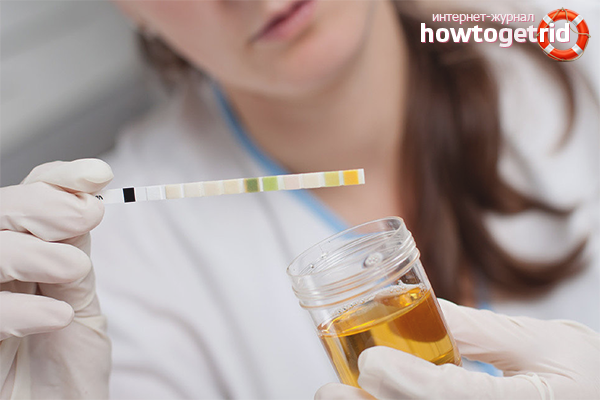
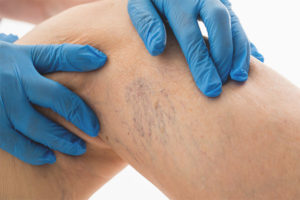

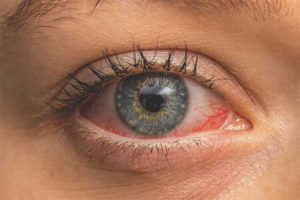


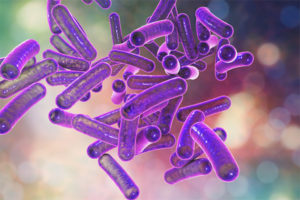
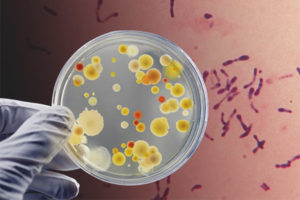

Submit